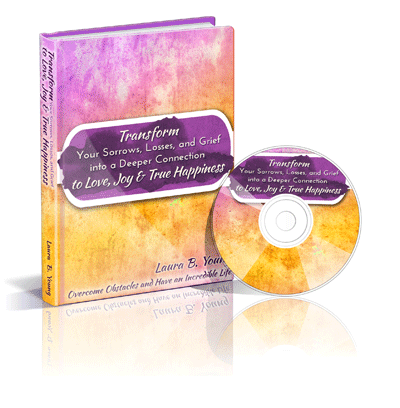Passivity does not help, denial does not heal.
“Give sorrow words: The grief that does not speak whispers the oe’r fraught heart, and bids it break.” (Shakespeare, 1892)
A major loss of love that does not get respected enough in our society is divorce. Some people have a more difficult time getting over a divorce than coming to terms with death. Death with its finality leaves us no choice; while in divorce one is betrayed or chooses to leave. Many identify with being part of a pair and letting go of the attachment very painful. One is left to create a new single role while letting go being part of a couple.
With the loss of a spouse in this manner, as in death, we lose a multileveled relationship. We are rarely aware of how many roles we have played. The loss of a spouse sends us reeling into many levels of loss, depending on the state of the relationship. The loss of a lover, friend, provider, confidant and nurturer are only a few of those roles, as well as loss of identity as a couple. All levels of loss need attention if we are indeed going to free ourselves from the past, whether the relationship was happy or troubled.
Unresolved grief demands respect, understanding and compassion. We may dread facing it fully; however if we do not, a dark cloud of unfinished business follows us around. Don’t stay in denial of the pain. Clients say “I am really taking it very well.” Often I see that is not the case at all. We just cannot bear to face the pain: the hole in their heart. We may be able to exist without resolution, but the heaviness of unresolved grief keeps us from having a full and passionate life. Sometimes frenetic busyness is used to fill up the time, leaving one exhausted but feeling empty.
We cannot pick and choose the feelings we push down; when we suppress sad feelings we deprive ourselves of joy, fulfillment and creativity. Taking the edge off sad emotions takes the edge off all emotions so numbing the sorrow also numbs the joy.
Often clients consciously and unconsciously fear that if they ever started to face their losses they would totally lose control. That is not the case. Note that I said “losses,” because when a serious loss reverberates in our lives, it creates a wave of loss on many levels. A woman told me, “If I ever started crying, I may never stop and then I’d really go mad”. She goes through life in a chronic state of sadness.
Failure to grieve may cause long term physical and/or mental health problems. Over time unresolved grief may lead to complications such as depression, anxiety and a loss of joy in life. To avoid the pain of loss, some people overindulge in many self-medicating behaviors such as smoking, drinking, drugging or sexing. A person with a history of accidents is often burying an unbearable sadness as well as being a suicide risk.
I sat with a client who told me, “I just want this pain to stop. I want it to go back to the way it was,” I nod, understanding how much every fiber of her being wants her old self and the old times back. Then I have to tell her the truth. “You will never be the same”. You can be stronger as a result of this time of loss and suffering, but you will not be the same. Hopefully, your life will not go back to business as usual; it can be so much more. These intense experiences allow us the space to be more courageous going forward, compassionate towards fellow humans, more resilient, but you will never be the same.”
Most times when we think of loss, we think of the death of our loved ones. Having experienced the loss of my parents as a child and later the loss of three siblings who had untimely deaths, as well as a divorce, I know the laser sharp, suffering pain of grief. The depth of grief that comes with such losses turns our lives as we know it upside down. When you are going through this intense level of sadness, you may feel that things will never feel right again. However, I know from personal and professional experience that you can get to the other side of grief. I was well into adulthood before the heaviness of my grief was resolved. Time in and of itself does not lift the sorrow.
We cannot stay in the depths of our sorrows and despair. That is not who we are. We have to find the courage to face them, respect them and do what we need to do to heal our broken hearts. I remember the “howling hurts” and the overwhelming power of the pain that almost took my breath away. Passivity does not help, denial does not heal. It takes putting courage to a sticking place so we can move ourselves step by excruciating step out of our broken places.
For help in overcoming your grief and for answers to assist you on your journey go check out Laura’s work:
From Laura’s “Overcome Obstacles and Have an Incredible Life“ Series, which offers boundless guidance, addresses doubts, fears and uncertainties that may be keeping you stuck and wondering if you have missed your chance to be happy. You have not! Check it out here!


Recent Comments